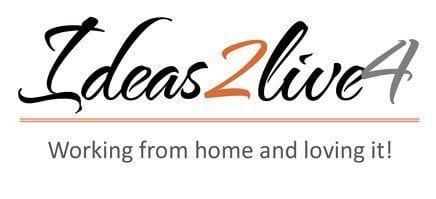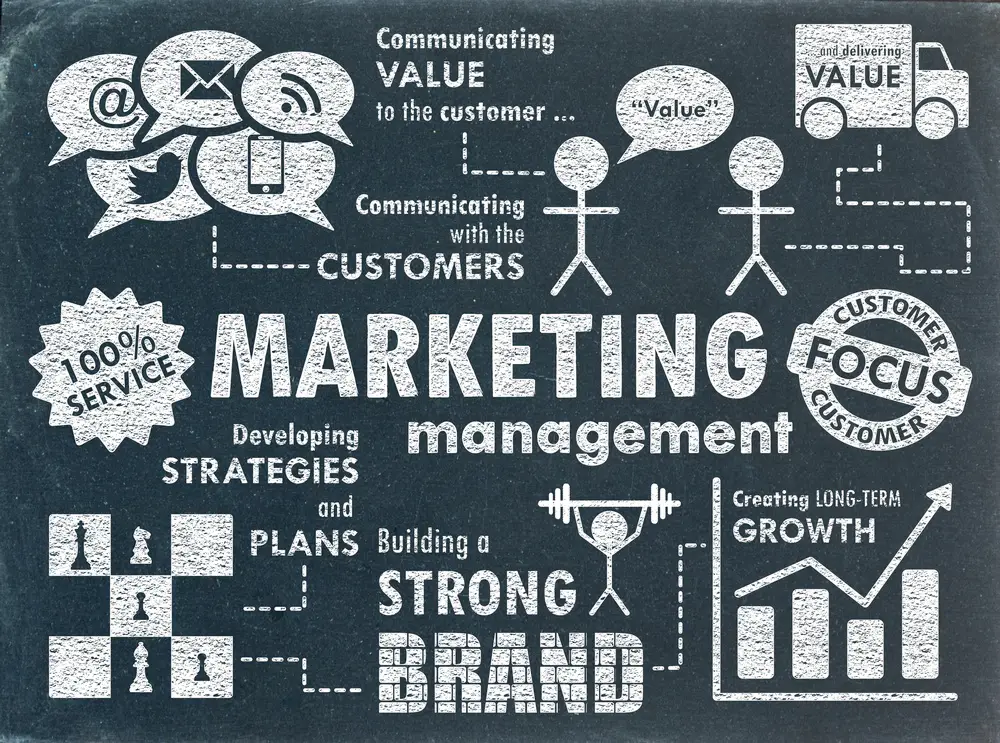Apr 3, 2017 by guest blogger Bob Warfield
For those of you who desperately want to start your own business, I want to caution you about the worst possible thing you will be tempted to do:
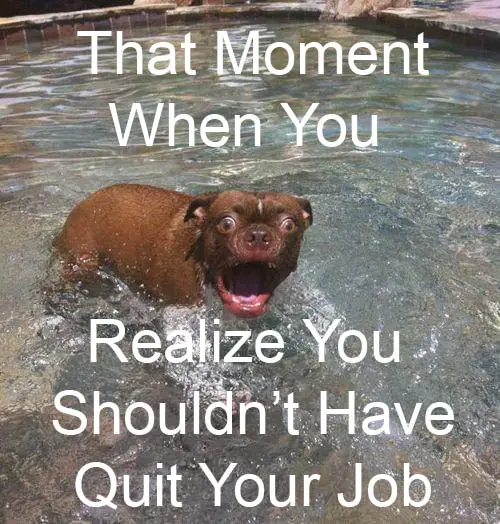
You are going to want to quit your Day Job and go all in. Don’t do it!
I know. I know.
The classic image of the entrepreneur includes quitting the Day Job right away. An entrepreneur is someone who risks it all to pursue their passion. We get visions of sleeping on friend’s couches, working out of garages, and eating ramen to save money. Entrepreneurship is all about sacrificing comfort, safety nets, backup plans and all caution so as to give us that ‘sharp edge’ and total dedication that’s so important when starting any business.
Right?
Wrong!
First, keep in mind that many successful people prepared for their eventual success part-time, without quitting their Day Jobs. Tom Clancy, for example, wrote his first best-selling novel, The Hunt for Red October, while running an Insurance business as his Day Job. Steve Wozniak carried on his Day Job at Hewlett-Packard for over a year after inventing and delivering the first Apple computer. Sara Blakely, the inventor of Spanx, sold fax machines door to door for seven years before her invention made it big enough for her to quit her Day Job and eventually become the youngest self-made billionaire in America.
In fact, organizational psychologist Adam Grant in his book, Originals: How Non-Conformists Move the World, argues that successful entrepreneurs are not the extreme risk-takers of the popular press. There’s even been a recent study that proves the advantages of easing into your new venture. The study, published in the Academy of Management Journal, tracked a group of about 5,000 American entrepreneurs for 14 years. The Researchers found that those who kept their Day Job while starting their new venture were 33% less likely to fail than the ones who went all in.
I don’t know about you, but increasing my chances by 33% sounds great to me!
Let me give you a radical thought to chew on before you quit that Day Job:
You don’t know enough about your new business to work at it full-time. And if you try, you’re going to squander the luxury of all that time and wind up with a lower likelihood of success on top of it.
Are you shocked? Do you disagree, perhaps violently? Bear with me a bit.
When I launched CNCCookbook, I did it totally part-time. I knew it was an experiment and not a livelihood at that stage. I had to develop a brand new software product (our G-Wizard Calculator) and I had to figure out how to sell it. Nothing about that was a sure thing and I had been around the entrepreneurial block often enough to know that. Perhaps I was lucky in that respect, having seen all the many ways business can go wrong when you think you have it all figured out.
This was in stark contrast to my first startup, when I had nothing but confidence. I just knew I could build a better mousetrap and, that if I did, the world would beat a path to my door. I was all of 23 years old and I had raised Venture Capital, which only served to make me even more foolishly confident in the invincibility of my business plan. That business turned out well, but not without a lot of failure, twists, and turns.
Perhaps most of all, I wasn’t used to the idea that most marketing-related things can be Tragically Knowable at relatively low-cost and low risk if you go about it properly and test them. That was a big part of the story in my last entrepreneurship article, “Brand New Business, No Customers, What to Do?“
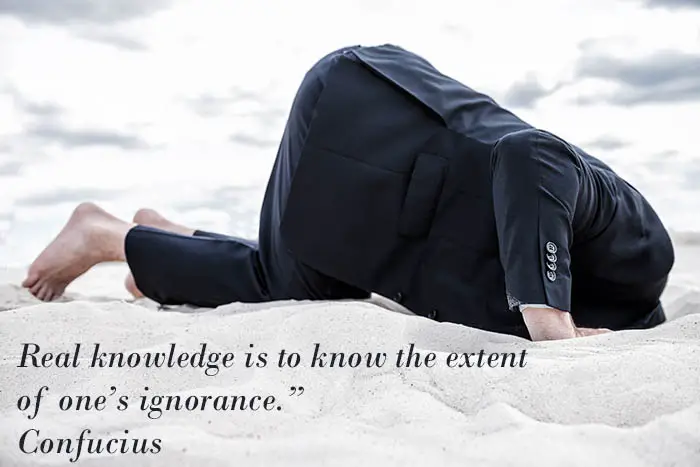
That business of things being Tragically Knowable is a big part of this, “Don’t Quit Your Day Job,” story too. It takes time to find and know your audience well enough to be successful. Unless you are very much the exception, you don’t know your audience as well as you think. In all likelihood you haven’t even found them yet. You may think you know your audience, but you don’t:
- If you think you know them because you’re a consumer of the kind of products you want to sell them, you have a start, but you don’t know your audience. You only know yourself, and therefore you only know about one kind of buyer. You will have no idea if the majority of the audience thinks the same way or whether there are many quite different ways of thinking about it. I will tell you from experience that the way I think about our G-Wizard Calculator, particularly when I first conceived it for my own use, is very much in the minority for my customers. I learned a lot of very important things in the early days.
- If you think you know your audience because you’ve read up and researched extensively what other companies are doing, again, you have a start, but you don’t know the audience. Not really. You’re going to discover, as I have, that you could literally copy a lot of what others are doing only to discover it doesn’t work very well for you. You may never find out why, but in essence, the customers for the other brands see something different there than they see when they look to your offerings, regardless of how slavishly you’ve tried to duplicate the other brands. Do you really think you could just copy the way Apple approaches everything and explode onto the market as the Apple of whatever widgets you want to sell? Sorry, no, it doesn’t work that way.
- If you think you know them because you’re working with a person who claims to know them, again, it’s a start, it might even be true, but in all likelihood it isn’t. If I had a penny for every VP of Sales or Marketing that got hired into some startup because they were coming from a much larger competitor and in theory knew the business, I’d be a very rich man indeed. But guess what? The vast majority of those cases don’t go particularly well. Often, they go very poorly in fact. Those big companies have gone through a journey that even they may not really understand. It’s one thing to carry on a brand without screwing it up at a big company, a brand someone else built from scratch. But it’s another thing entirely to build your own brand from zero.
I could go on like this, but you’re probably starting to get the picture. My goal here is not to depress you about your prospects; it is simply to tell you that the first part of your journey will be about learning. Embrace that. Prepare for it. Accept it, and you will be much more likely to succeed.
Having a Day Job will give you the time to iterate and perfect your idea. It will give you time to build a large enough mailing list so that when you’re ready to sell them something, there are enough of them to make it interesting. Just having the capital from your Day Job can make all the difference. Plus, if you discover that your original idea won’t work, having a Day Job gives you the luxury to pivot and save as much of the momentum you’ve created as possible.
Given that you’re prepared to iterate and keep your Day Job, means you’ll be able to test a lot of things. You’ll be checking into the Tragic Knowability of various ideas. You should try to do all those things I mentioned – be a consumer of the products you want to sell, research the heck out of the market, and meet and talk to people who should know and understand the market. All of that will be grist for your mill of understanding. But, you must put those lessons to the test before you accept them as Gospel and start to believe you know your market.
There are lots of levels of testing. Building and selling a product to the audience is the very last stage, because it is the most expensive and time-consuming. Put it off while you conduct cheaper and more nimble tests. Can you make posts in the online communities of your audience that are popular? Can you write articles that your audience is drawn to on a consistent basis? These are tests that are lightweight and easy to perform.
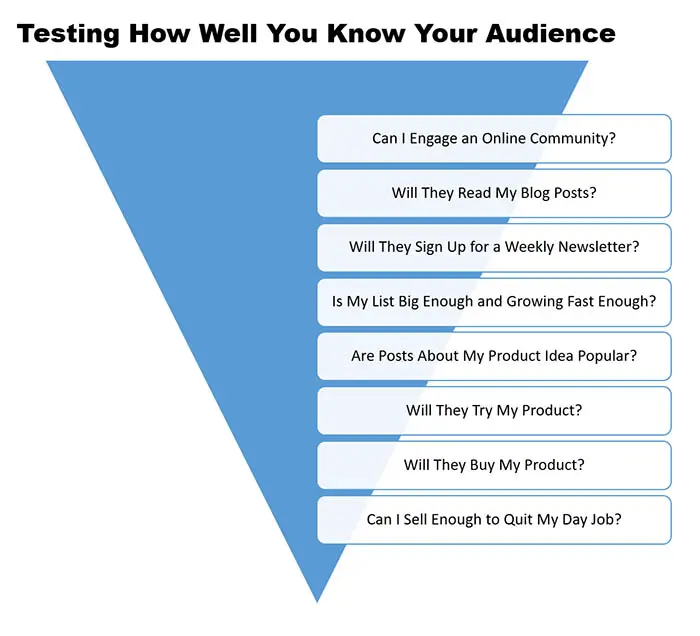
You will find that not having a gun to your head to produce concrete sales too soon is a very good thing. Removing that pressure will let you keep a clear head and focus on these critical lessons so you start your business off on the right foot.
If you’ve ever known really world-class sales people, one thing you will have observed is that they are good listeners. They let the customer do the talking. They speak just enough to get the customer started talking and to keep them talking about the subject so they can learn what they need to know to close the sale. That’s what you’re going to be doing with your audience.
One more thing I want to address here, just a bit, before closing. Many of you will be thinking,
It’s all fine and well to talk about not quitting my Day Job, but it keeps me busy – how in the heck will I find enough time to start a business while still working?
I get it. This is a very real concern. It’s very easy to feel overwhelmed and unable to add anything else to your plate while working hard at your Day Job. But, there are ways to get it done. There are tools you can use to free up the time and make sure you’re using it effectively. Towards that end, I am putting together a free mini-course on just exactly that –how entrepreneurs get things done.

We’ll help you find the time…
Because the reality is that when starting a business, there’s never enough time, even after you do quit your Day Job. You need these tools to be effective.
This free mini-course, called Work Smart and Get Things Done, is a part of a larger program I’m launching later this year called Customer Critical Mass. You can get the free the mini-course and be kept up to date on the full course by subscribing here.

Bob is a serial Entrepreneur with broad industry experience including CNC Manufacturing, social, cloud, big data, SaaS, desktop, and enterprise software in organizations ranging from startup to publicly traded $500M/year companies.
Bob is founder and CEO of CNC Cookbook, the CNC Manufacturing Industry’s most popular blog and a haven for professional CNC’ers and DIY Makers alike.
“And Bob said ‘let there be light’, and our organic search traffic doubled. But Bob’s contributions to our organization at a critical inflection point went farther than understanding of the complexities, time frames, and ROI impact of organic demand generation. Through constantly challenging our thinking while always at the ready to extend a helping hand, Bob not only delivered business results, but also helped formulating a solid, grounded strategy that will serve us well into the future. Working alongside Bob has been a privilege, thought-provoking, and a lot of fun.”
